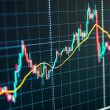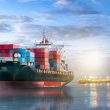by Stephen H. Dover, CFA, Franklin Templeton Investments
Listen to our latest “Talking Markets” Podcast.
Transcript
Stephen Dover: Francis, let’s start with you about China. Maybe you could just give us your outlook on China and how you’re thinking about that right now.
Francis Scotland: Well, the world economy is slowing and a large part of that is because of China. So, we can break it down into some secular themes, policy themes, but President Xi’s pursuit of this policy called common prosperity has basically, so far, been a repressive campaign against private enterprises, crackdowns on internet platforms, fintech, tutoring, data privacy, crypto trading, and now property speculation and leverage. So, it’s no wonder that growth targets have been tossed out. You know, you can’t wake up most mornings and not read about some new regulation that the Chinese authorities are saddling the economy with. So, those policies and the campaign to de-lever the economy is sort of a structural backdrop to what I think is going to be slower growth in China for a long time. But that comes on top of things that they already did last year.
In 2020, China was the first to renormalise after the pandemic. They cut back on fiscal policy. They raised interest rates and the 10-year Chinese bond yield actually peaked in November of 2020, and yields have been trending lower ever since. In fact, they’re not too far off from where they were at the beginning of the pandemic. So, the economy is slowing, fiscal and monetary policy are behind the curve, but again, there’s been another shift in China. Chinese authorities have stepped back from this counter-cyclical pattern of what we would call a Keynesian stimulus. And they’ve adopted a policy now called cross cyclical, not counter cyclical, cross cyclical. And the idea here is they don’t want to chase interest rates lower or more stimulus as the economy is going down and then put on the brakes as the economy is going up. They blame a lot of the excess leverage in their system on those kinds of policies. So, they’re really trying to hold back. And all of that is preventing a reflationary reaction to some of the slowdown that is playing out right now in the economy.
And the last thing I would say about it really is to think of all of that now in the context of what’s happening in the property sector, China is trying to rotate the foundations of its financial system away from the property sector. So, we’ve all read about Evergrande and this may turn out to be a controlled implosion of the largest property company in the country, happened to be very over leveraged. None of this is really a surprise, but there’s this demographic cloud that hangs over the property sector in China, the labour force peaked in 2015, they’ve got excess inventory and the authorities want to pivot away the reallocation of savings into the property sector, into other sectors of the economy. So, this is a deflationary shock to the system at a time when the economy is already slowing. So, I would think that in the global context, it’s a big reason why the global economy is slowing. To some extent, it mitigates some of the inflation story we’re seeing in other parts of the world, but China is really on a different track than a lot of the Western economies.
Stephen Dover: Michael, in the global financial crisis in 2008, 2009, it was really China and its massive stimulus that drove the global economy out of that situation. How are you looking at China now?
Michael Hasenstab: Well, I think it is the right question to be asking. China, in our lifetimes, is probably the biggest geopolitical shift that we will witness, and we’re right at the beginning stages of it. I think it is a dynamic that is more defined as confrontational, adversarial, and this is going to play out in a multiple of factors, disentanglement, strategic interests. So, I think we need to spend a lot of time thinking about this. With regard to China’s, sort of, economic path, I think there’s two things. Francis mentioned a lot of the government intervention in certain sectors. And I think it falls in the ESG context of what is the objective and how do these play out and I think there’s a lot of uncertainty there for sure.
I think if we separate that out from kind of the cyclicality of their economy, and as Francis mentioned, they were the first to come out of COVID and they were also the first to pull the reins back—they did tighten monetary policy. They did tighten fiscal policy intentionally, I think to tamper a little bit or dampen a little bit of that growth surge. And so, you’re seeing the effects of that. And then the question is, are we going into some sort of hard landing that was either engineered intentionally or unintended consequences of some of these other factors? I think it’s a little early to say, to go that far. I think what we’re seeing is a normalisation to a lower trend growth rate that is expected in China, as their economy gets bigger and bigger. You don’t see those high single-digit growth rates as trend. And so I think you’re seeing a normalisation right now to a lower trend growth. But in terms of thinking this will be some sort of hard landing, I think that it’s way too early to say at this point. I think we also have to look at some of these financial dislocations and as we’ve been asking certainly since GFC [global financial crisis], is there a systemic risk to the banking system as a whole in China? Clearly there are sectorial risks, there are individual company risks, but in terms of a systemic banking system, because they have control of the capital accounts, because they have large financial resources, I think it’s probably unlikely that this is systemic. It can be some painful dislocations, but not a systemic crisis.
So, if you add those together, I think what we are seeing is more of a normalisation to a lower-trend growth rate. But going back to that first point, we certainly have to watch the changing geopolitical landscape between the US and China, and not just between those countries, but how does Germany deal with this? They trade more with China than they trade with the US. Southeast Asia, there’s a lot of investment coming in and a lot of greater influence. So, I think it’s not just US and China, but it’s how the rest of the world fits into this adversarial relationship.
Stephen Dover: Michael, you’ve been outspoken about China developing a central bank currency and the whole digital formation of what China might do. How are you thinking about this all playing out and China’s move, at least historically, to try to be a reserve currency, if there really is this kind of two forces within the world?
Michael Hasenstab: Well, I think this is all part of a broader project, which is to decrease their reliance upon the US dollar, and you can’t do that unless their currency is elevated to a level which doesn’t surpass the US dollar as a reserve currency but at least begins to rival it certainly within smaller countries. And so, I think adoption in the US would be probably last on the list, but you are increasingly seeing some adoption in parts of Asia, parts of Africa, where more trade and more transactions are being denominated in the yuan. And I think moving towards a central bank digital currency is one of the steps to help facilitate the ease of ownership and transaction in that. I think it probably also behooves China to create more stability in their exchange rate, if that is a goal to be more of an international reserve currency, because you don’t want great currency volatility, if your desire is to get more adoption. So, I think we all recognise the US dollar is such a massive reserve currency it will take a very long time, but I think we should be aware of some of these policies that are being put in place to really, sort of, leapfrog into the digital world, and grow the usage of the RMB [renminbi], which would have important implications.
Francis Scotland: I think the Chinese have done what the US Treasury would like to do, which is to outlaw crypto trading. Besides a lot of the activity being illegal, they see it as an attack on the sovereignty of the central bank’s ability to control money, and this is something the [US] Treasury Secretary has spoken about. I think she would welcome a similar initiative in the United States. So that part of it, I don’t think is overly controversial. My feeling is that we’re going to end up with two twin systems for an extended period of time: an RMB-based economy that China will try to enforce on smaller trading partners who want to do business with China. I concur with Michael—I don’t see anything in the near future that would undermine the status of the US dollar notwithstanding some of the scandals we’ve seen at the Federal Reserve in recent weeks. But I don’t think, in the short term, I don’t see a whole lot of upside in the RMB. With the Chinese economy slowing the way it is, the authorities are being very careful about avoiding a full-scale reflation, but they’re doing it on a targeted basis. And the last thing I think they would want to deal with right now is a tightening in the economy brought on by a rising currency. So, I think the RMB has peaked for the time being.
Stephen Dover: Francis, you’ve looked particularly close at Japan. Can you talk a little bit about your thoughts about Japan?
Francis Scotland: I find Japan a fascinating country to understand. One of the issues we’re all dealing with is how much has the pandemic changed the world, from many perspectives, but for us as investors. And when I think about Japan, it was, sort of, the poster country to explain what’s been going on for the 20, 25 years preceding the pandemic. So, it’s this excess savings story. Japan had decent supply side potential. The supply side of the economy is expanding, but its population has been contracting. So, we know that internal demand has been weak and that wedge is a deflationary wedge. And so the Japanese system has been running budget deficits of 5-7% for 20 years. And since 2012, with the Bank of Japan expanding its balance sheet, it’s basically been doing Modern Monetary Theory now for eight or nine years. And so here we are almost two years into this pandemic and, you know, what’s the story in Japan? Well, the story is not much has changed. Inflation is still pretty close to zero. Bond yields are still pretty close to zero. The Japanese yen has been remarkably stable. So, the question then is, on a broader perspective, when we look at the world, demographics haven’t changed since the pandemic. When we look at globalism, I really don’t think globalism is changing that fast. Perhaps if we have a, you know, a geopolitical event, China finally takes Taiwan back, that may trigger something, but at the moment, I don’t see massive onshoring of Chinese production back to the United States.
And so, the last category s really productivity. In the United States, the productivity story, this cycle, has been incredible. I mean, we all managed to get through the pandemic because we’re working like this, we’re working from home, and it was because of technology. Technology and the digitalisation of the US is incredible. So, when I think about Japan, I think of in this context of this secular story that’s been supporting the bond market all these decades. How much of that has gone out the window with all these changes that we’ve incurred during the pandemic. And my sense is that these underlying secular themes that we see so strongly in Japan persist, they really haven’t vaporised in any kind of material way just yet.
Michael Hasenstab: You know, I would agree with Francis’ point. I mean, there’s a lot of inertia into the challenges that Japan has faced for decades. There’s no question there. I would say, you know, under Foreign Prime Minister Abe and likely to be generally continued with the LDP [Liberal Democratic Party] and in following, you know, sort of, a more centrist approach with the new PM, not really changing a whole lot. I think there have been a couple of things that are interesting at the margin. One was a big move to increase female labour participation, which had really lagged and through pretty effective efforts and sort of childcare, and helping working hours. Japan has actually been one of the few countries that has meaningfully increased female participation in the labour force. And to the point of they are losing on the broader demographics, but half the population really has not been participating as much as they should’ve in labour participation and that is starting to change. So, that takes some time, but we have set some of the stages or for some change there, I think in a positive way. There has been some, at the margin, I think positive changes in terms of corporate governance. It had been very opaque for a long time and some steps were made in that direction. The third point would be the labuor shortage is really mandated a lot of automation. And as we think forward automation clearly is at the forefront of technology needs and in Japan is there. They missed a lot of the web-based decade, but I think in terms of automation, they are there. Now, I wouldn’t say these are going to be able to shift those longer-term inertia overnight, but I would say that those are sort of three positives that that might be beginning to unfold in Japan, but again, they are longer term dynamics and will take some time.
Stephen Dover: Francis, kind of playing off what, Michael just said, talking about labor participation, how are you looking at labour participation, labour inflation, issues around labour globally?
Francis Scotland: One of the shock effects, I guess, from the pandemic is a number of supply issues have arisen. So, I would take the line that much of what we’re seeing in terms of US inflation right now, and inflation generally, are supply effects. If you look at the crisis from the perspective of a natural disaster, we had a historic bust followed by an historic boom. We’ve never seen anything like this in recorded economic history. So, the world economy has reopened and demand has come with it. But the supply side of the economy, you know, just-in-time delivery was developed over a period of time where we had predictable, incremental expansion in the world economy every year. You know, what’s the annualised growth in the US over the last four quarters, what 20%? We haven’t seen anything like that.
And so, when I think about labour shortages, I see it as one of three supply issues that are affecting the economic story right now and inflation. And the first one is just distribution. You know, look out your window at all the ships sitting out there in port waiting to be unloaded. That’s some sort of supply blockage. In the United States, in particular, the labour supply is not coming back. It remains to be seen now that the [US] federal benefits have come to an end, whether we’ll see employment gains.
And the third supply shock is of course, what we’ve seen recently, is energy. So the Federal Reserve and I think central banks in the West in general are making an enormous bet that these supply shocks are temporary. I think they’re right. I would caveat being energy, but I think that on distribution and on labour, I think that they’re taking the right perspective that these are probably temporary, but they could take longer to resolve than the Fed would like, in which case, you know, we have to deal with it for a longer period of time. But that’s the context in which I’m thinking about the labour issues. Will it push up real wages? Will it create an effect that the Federal Reserve might regret not reacting to sooner and have to deal with it later? And the bet they’re taking is it’s temporary.
Stephen Dover: Well, Michael, can you give your view, obviously in the US, but also globally?
Michael Hasenstab: Yeah. I mean, we’ve had obviously similar to everyone, a lot of debate internally, and we have a pretty wide range of views in terms of, is this temporary, or is this permanent? We don’t know for sure because this is pretty unprecedented, but we do have a pretty high confidence in what are the variables we need to watch to determine is this permanent or temporary. And as Francis said, I think it comes back to labour. As we look throughout history, as we look in other countries, if those supply shocks last long enough, if it changes inflation expectations more permanently and they become embedded in real wage adjustments, then the probability is that they become more permanent shocks. If they are temporary and you don’t get permanent, real wage adjustments, and inflation expectations come back down, then I think the argument of them being temporary can also make sense.
I don’t think we know exactly the answer to that question, but I think we know what to watch. And I would say the labour market’s probably the most important dynamic to watch. And it has been a bit of a surprise, you know, those programs ended and we didn’t see the surge of labour reentering. I think some of it has to do with people who are a little bit older, who took early retirement. Some of it has to do with labour that left the country. Maybe there’s a lag in terms of those people coming back who were on those programs before they reenter the labour force. But that is very important that we watch over the next of months to see, do we get, you know, labour coming back into the system, because I think that’s a supply shock that that could really kind of affect the longer-term inflation dynamics, but probably still a little bit early to know.
Stephen Dover: Francis, the other question in terms of impacting inflation and the economy is the rise in energy prices. How are you factoring that in? And what are you thinking about that?
Francis Scotland: This is a big issue—energy price increases always have consequences. And I think this is a by-product of activists and concerns about global climate change. Global climate change is viewed generally as the existential threat to the planet and the policies that are being brought to bear to deal with that challenge are mainly repressive: carbon taxes, pollution quotas, and then we have financial and activist pressure. And I think what that’s doing is it’s starving the traditional energy sector of oil and gas from capital and the ability to go and develop and respond to the increases in price by responding with supply. So, the risk with this rapid shift driven by these climate change policies is that the alternative energy sector would not be able to respond fast enough. And I think we’re seeing that.
So the idea that alternative energy could respond to this shortage we’re experiencing is something I can’t see alternative energy meeting that demand within the next 10 years. So, we have a very serious energy price shock taking place right now. It’s starting to reverberate. In the United States, for example, real personal consumption has been flat since March. So, the inflation effects of this are beginning to be felt in a real way. And I think from the point of view of labour demanding higher wages, an energy price shock is more visceral. It’s something that you can really feel. You can see it at the gas pump. You can go back to business and demand a higher wage. So historically, if you have a supply shock that reduces the ability of the economy to grow as fast without creating inflation, the Fed reacts to that. And the Fed always did. If you look at, economic history, the last 25, 30 years, anytime the energy prices were going up, the Fed was leaning into it and this time they’re not. And so, it’ll be very interesting to see how policy makers react to this energy shock. At the moment, the supply side can’t respond, you know, we’re left to the vagaries of OPEC [Organization of the Petroleum Exporting Countries] and what they want to do. And the demand side, any government support to help people out with the rising fuel costs and the energy costs is going to just encourage the overshoot in prices because it doesn’t reduce demand. So I think the climate change and the policies that are driving it are a big part of what this energy shock is about. And I think it’s really quite serious from the point of view of where we end up a year or two from now both in terms of the real economy, as well as the inflation level.
Stephen Dover: So, Michael, just your quick outlook on Europe, the euro, and perhaps the sterling.
Michael Hasenstab: I think that, you know, the issue on Europe really is kind of twofold. One is how the energy shock flows through. And I think it’s really a question of is this permanent, or is this temporary? And we probably won’t know the answer to that for a couple of months. And it feeds into the big supply disruptions that are underway and those huge supply disruptions, particularly in places like Germany really are stalling some of this economic recovery that would have otherwise been occurring because the demand was there, but companies simply cannot get the goods to produce. So, these are the same questions that we’re asking in the US. We need to understand the inflation dynamics vis-a-vis is this permanent or temporary energy shock? Does it feed through into wages? And how quickly can the supply respond to allow growth to normalise? And certainly, there’s a lot of sand in the wheels on both of those right now.
I would say, the other dynamic that three months ago we would have been talking about, the German elections, is this huge, big pivot shift. I think one of the interesting things is it’s really, kind of, gone forward without really much of a pivot. Parties change, but without the first past the post system and proportional system, you’ve seen it kind of more centrist. So that’s probably an issue that we would have talked a few months ago, but now, you know, probably not talking.
Stephen Dover: And, Francis, how are you looking at Europe, and the euro and other European currencies including the sterling?
Francis Scotland: I look at it more from the [US] dollar side, Stephen, and I’m struck by what’s not happening in the dollar. The dollar is slightly overvalued. We’ve had an increase in the current account deficit. The twin deficits for dollar bear, a chart showing the dollar and the twin deficits predicts a pretty big decline in the dollar and yet it’s not happening. And I think more than any other single market price out there, the dollar may be the most significant, even in terms of the inflation story. If you do a correlation with DXY [US Dollar Index] on top of a five-year five-year forward, at least since the GFC, the odds of having a material deterioration in the outlook for inflation doesn’t seem likely without a big breakdown in the dollar.
And yet here we are, almost two years into this, we’ve had a huge expansion of the Fed’s balance sheet. We’ve had big budget deficits, a lot more public debt, deterioration in the current account, negative real rates, you name it. And now we’ve got an administration that’s talking about a fairly big tax agenda, which is normally slower growth. And yet, at the end of the third quarter, DXY was 3% lower than it was at the end of 2019. That’s remarkable. That’s an incredible story. There’s something going on in the US dollar that I think is pretty constructive. There’s an underlying demand for dollar liquidity. One of the cyclical forces here has to be the story in China and then the story of slower growth in Europe. But what I also think that, from a productivity revival point of view, the US may be the strongest player on the field right now in terms of digitalization and what that’s going to do to underlying real economic trends.
So, these are some of the factors that I think are acting to support the US dollar relative to a number of other currencies in the world, including the constellation of European currencies around the euro and sterling.
Stephen Dover: Well, thank you. Thank you, Francis Scotland. Thank you, Michael Hasenstab. Really a fascinating conversation.
Host: And thank you for listening to this episode of Talking Markets with Franklin Templeton. If you’d like to hear more, visit our archive of previous episodes and subscribe on iTunes, Google Play, Spotify, or just about anywhere else you get your podcasts. And we hope you’ll join us next time, when we uncover more insights from our on the ground investment professionals.
Important Legal Information
The views expressed are those of the speakers and the comments, opinions and analyses are rendered as of 6 October 2021 and may change without notice. The information provided in this material is not intended as a complete analysis of every material fact regarding any country, region, market, industry, security or strategy. Statements of fact are from sources considered reliable, but no representation or warranty is made as to their completeness or accuracy.
Any companies and/or case studies referenced herein are used solely for illustrative purposes; any investment may or may not be currently held by any portfolio advised by Franklin Templeton. The information provided is not a recommendation or individual investment advice for any particular security, strategy, or investment product and is not an indication of the trading intent of any Franklin Templeton managed portfolio. Always consult a qualified professional or your own independent financial professional for personalised advice or investment recommendations tailored to your specific goals, individual situation, and risk tolerance.
What Are the Risks?
All financial decisions and investments involve risk, including possible loss of principal. The value of investments can go down as well as up, and investors may not get back the full amount invested. Bond prices generally move in the opposite direction of interest rates. Thus, as the prices of bonds adjust to a rise in interest rates, the share price may decline. Special risks are associated with foreign investing, including currency fluctuations, economic instability and political developments; investments in emerging markets involve heightened risks related to the same factors. To the extent a strategy focuses on particular countries, regions, industries, sectors or types of investment from time to time, it may be subject to greater risks of adverse developments in such areas of focus than a strategy that invests in a wider variety of countries, regions, industries, sectors or investments. China may be subject to considerable degrees of economic, political and social instability. Investments in securities of Chinese issuers involve risks that are specific to China, including certain legal, regulatory, political and economic risks. Commodities and currencies contain heightened risk that include market, political, regulatory, and natural conditions and may not be suitable for all investors.
There is no assurance that any estimate, forecast or projection will be realised.
Data from third party sources may have been used in the preparation of this material and FT has not independently verified, validated or audited such data. FT accepts no liability whatsoever for any loss arising from use of this information and reliance upon the comments opinions and analyses in the material is at the sole discretion of the user.
Products, services and information may not be available in all jurisdictions and are offered outside the U.S. by other FT affiliates and/or their distributors as local laws and regulation permits. Please consult your own financial professional for further information on availability of products and services in your jurisdiction.
Issued in the U.S. by Franklin Distributors, LLC. Member FINRA/SIPC, the principal distributor of Franklin Templeton’s U.S. registered products, which are available only in jurisdictions where an offer or solicitation of such products is permitted under applicable laws and regulation. Issued by Franklin Templeton outside of the US.
Please visit www.franklinresources.com to be directed to your local Franklin Templeton website.
Copyright © 2021 Franklin Templeton. All rights reserved.
This post was first published at the official blog of Franklin Templeton Investments.













